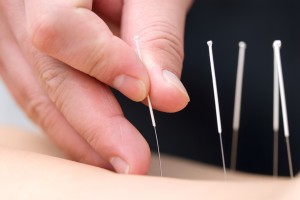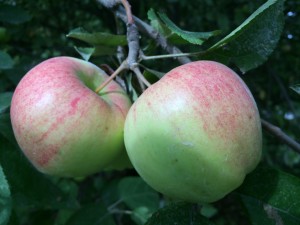 When I recommend acupuncture, one of the most common questions I get is “how does acupuncture work or how will it help?”. Acupuncture has been used for thousands of years to aid with so many different health concerns. Over the course of that time, many studies have been conducted to determine how this therapy causes effect, and what it can be used for. The following presents a list of both actions that can take place in the body and the potential conditions or symptoms it can help to alleviate.
When I recommend acupuncture, one of the most common questions I get is “how does acupuncture work or how will it help?”. Acupuncture has been used for thousands of years to aid with so many different health concerns. Over the course of that time, many studies have been conducted to determine how this therapy causes effect, and what it can be used for. The following presents a list of both actions that can take place in the body and the potential conditions or symptoms it can help to alleviate.
How Does Acupuncture Work?
Acupuncture works via many different pathways which cause:
- Release of endorphins – resulting in decreased pain
- Relaxation of muscle
- Stimulation of neuronal activity and brain tissue
- Secretion of hormones and neurotransmitters
- Promotes blood flow
- Stimulates the parasympathetic nervous system which causes reduced stress
What Can Acupuncture Help with?
Acupuncture can help with many surprising conditions/symptoms including:
- Pain – joint and muscle
- Arthritis – including rheumatoid arthritis, osteoarthritis, psoriatic arthritis and gout
- Muscle tension
- Sports injuries
- Stress
- Fertility
- Depression
- Anxiety
- Headaches/ Migraines
- Insomnia
- Menstrual irregularities
- Coughs and colds
- Asthma
- Sinusitis
- Weight loss
- Fatigue
- TMJ syndrome
- Tinnitus
- Smoking cessation
- Heartburn
- Digestive disturbances such as constipation and diarrhea
- Concerns during pregnancy
- To ease discomfort and aid during delivery
How Does Dr. Elisha Cook ND Use Acupuncture?
My approach to acupuncture is based more on Chinese medicine than on Western medicine. What I mean by this is that I do not simply put a needle where it hurts, but rather look at the body as a whole and attempt to support the whole system. As I often tell my patients, you are not your disease and you need to be treated as such. This implies that you are a unique individual with unique presentations results in you needing certain points over others. So for example, two individuals come to me looking for acupuncture for fertility. I will not use the exact same points on these two individuals and the points chosen will not be only around the stomach/uterus area. I also do not use solely acupuncture on a patient. In my opinion, it is best to use the acupuncture while allowing diet, lifestyle, botanicals, and supplements to boost deficient areas. However, all of this is determined at the patient’s comfort level and I work with you where you are at (for example if you only want acupuncture, then we only do acupuncture).
If you are interested in trying acupuncture, feel free to contact the clinic by calling 519-537-7058 and book your appointment today!
Have you benefited from reading this blog? Know someone that would benefit as well? Share, Like, Comment, or Tweet this article, and let me know what you think.
Some of the information provided above may not be appropriate for everyone, please consult with your doctor before trying any of the above. If you are interested in Naturopathic Medicine and wanting a different approach to your health care needs, contact Dr. Elisha Cook ND by calling 519-537-7058 and book your appointment today!

